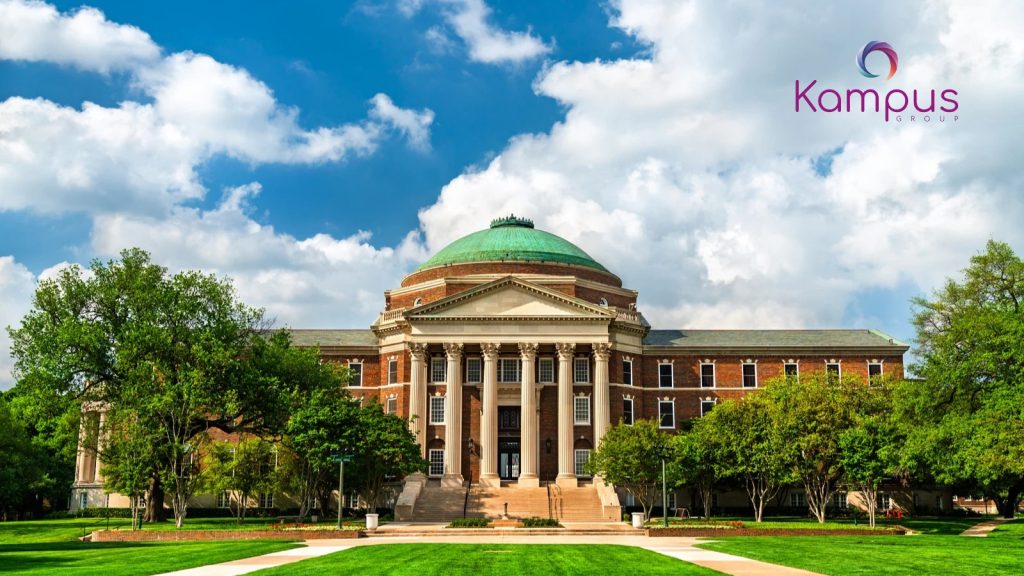The United States is home to over 4,000 colleges and universities, making it one of the most diverse higher education systems in the world. If you’re planning to study in the US, it’s important to understand the different types of institutions available so you can choose the one that best matches your goals, budget, and academic interests.
Although the terms “college” and “university” are often used interchangeably, the structure, size, and focus of each institution can vary significantly.
1. Public Universities (State Universities)
What they are:
Public universities are funded and operated by state governments. They typically offer a wide range of undergraduate, graduate, and doctoral programs and are known for their affordability, especially for in-state students.
Why choose them:
They offer strong academic programs, diverse student populations, and often have large campuses with extensive facilities.
Examples of Public Universities:
- University of Florida (UF)
- University of Michigan
- University of California, Los Angeles (UCLA)
- Pennsylvania State University
- University of Texas at Austin
2. Private Universities
What they are:
Private universities operate independently of the government and are usually funded through tuition fees, private donations, and research grants.
Why choose them:
These institutions often have smaller class sizes, more personalized attention, and strong alumni networks. Tuition tends to be higher, but many offer generous financial aid.
Examples of Private Universities:
- Stanford University
- Harvard University
- Yale University
- Massachusetts Institute of Technology (MIT)
- Duke University
3. Ivy League Universities
What they are:
The Ivy League is a group of eight prestigious private universities in the northeastern US. Originally an athletic conference, today the term represents academic excellence, elite admissions, and strong traditions.
Why choose them:
They’re globally recognized for academic excellence, world-class faculty, and extensive resources. Admission is highly competitive.
Ivy League Schools:
- Harvard University
- Yale University
- Princeton University
- Columbia University
- University of Pennsylvania
- Brown University
- Dartmouth College
- Cornell University
4. Technical and Specialized Institutes
What they are:
These institutions focus primarily on science, technology, engineering, and mathematics (STEM). Many also emphasize research and innovation.
Why choose them:
Ideal for students with a strong background in math and science who are looking for a technical or career-focused education.
Examples of Technical Institutes:
- Massachusetts Institute of Technology (MIT)
- Georgia Institute of Technology
- Virginia Tech
- California Institute of Technology (Caltech)
- Rensselaer Polytechnic Institute (RPI)
5. Liberal Arts Colleges
What they are:
Liberal arts colleges offer a broad-based education across humanities, sciences, and social sciences, with a strong focus on undergraduate teaching and critical thinking.
Why choose them:
They offer small class sizes, close interaction with professors, and a well-rounded education. Ideal for students interested in exploring multiple disciplines.
Examples of Top Liberal Arts Colleges:
- Amherst College
- Williams College
- Pomona College
- Swarthmore College
- Wellesley College
6. Community Colleges
What they are:
Community colleges offer 2-year associate degrees and certificates. Many students use them as a stepping stone to a 4-year university through transfer programs.
Why choose them:
They are more affordable and flexible, making them a great choice for students on a budget or those unsure of their major.
Examples of Community Colleges:
- De Anza College (California)
- Foothill College (California)
- Green River College (Washington)
- Hillsborough Community College (Florida)
- North Seattle College (Washington)
FAQ: Types of US Higher Education Institutions
Q1: What’s the difference between a college and a university in the US?
A university typically offers a wider range of programs including graduate and doctoral degrees, while a college may focus more on undergraduate education. However, the terms are often used interchangeably in the US.
Q2: Can international students apply to community colleges?
Yes! Many community colleges welcome international students and even offer transfer programs to universities after completing a 2-year associate degree.
Q3: Are Ivy League schools better than other universities?
Ivy League schools are prestigious, but many other public and private universities also offer world-class education. What’s best depends on your goals, budget, and academic preferences.
Q4: Do all technical institutes only offer engineering degrees?
While their focus is on STEM, many technical institutions also offer programs in business, management, design, and even humanities.
Q5: What type of institution is best for international students?
It depends! Community colleges are more affordable, public universities offer strong academic reputations, and private universities may provide more scholarships. Researching based on your career goals is key.

